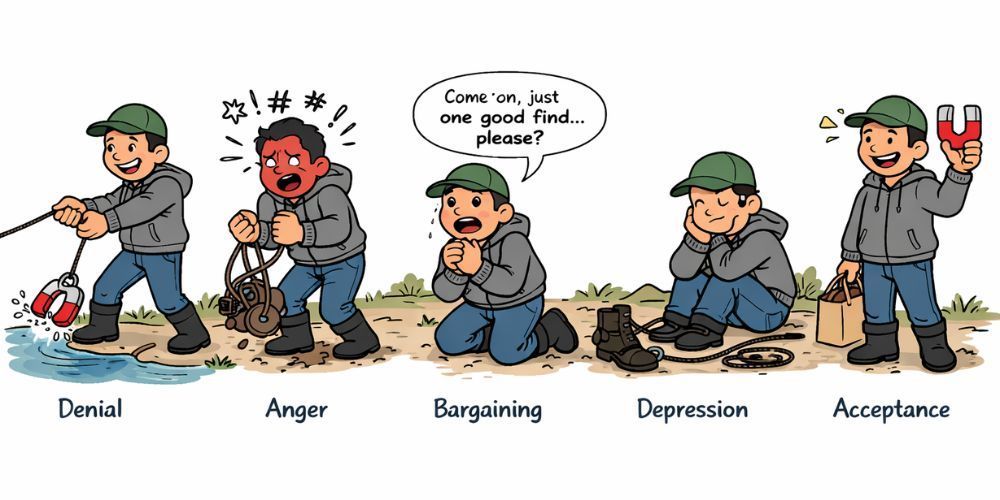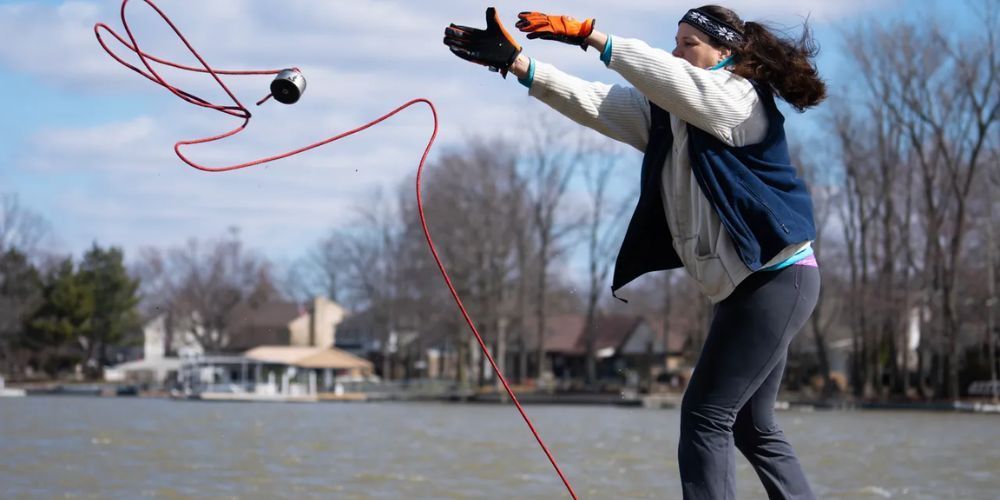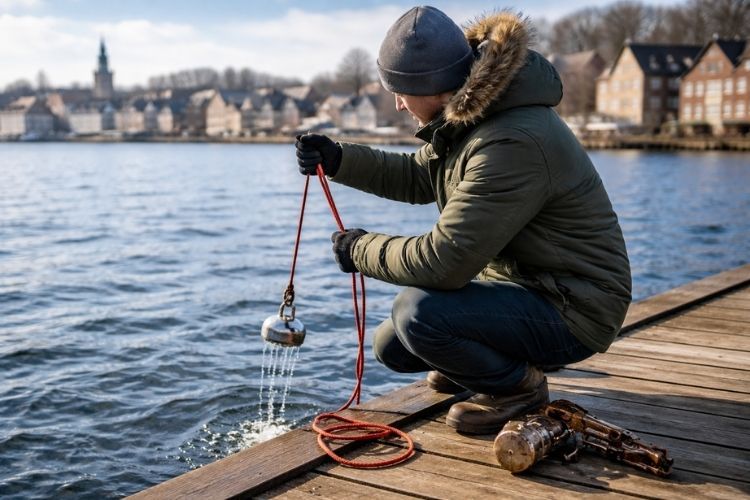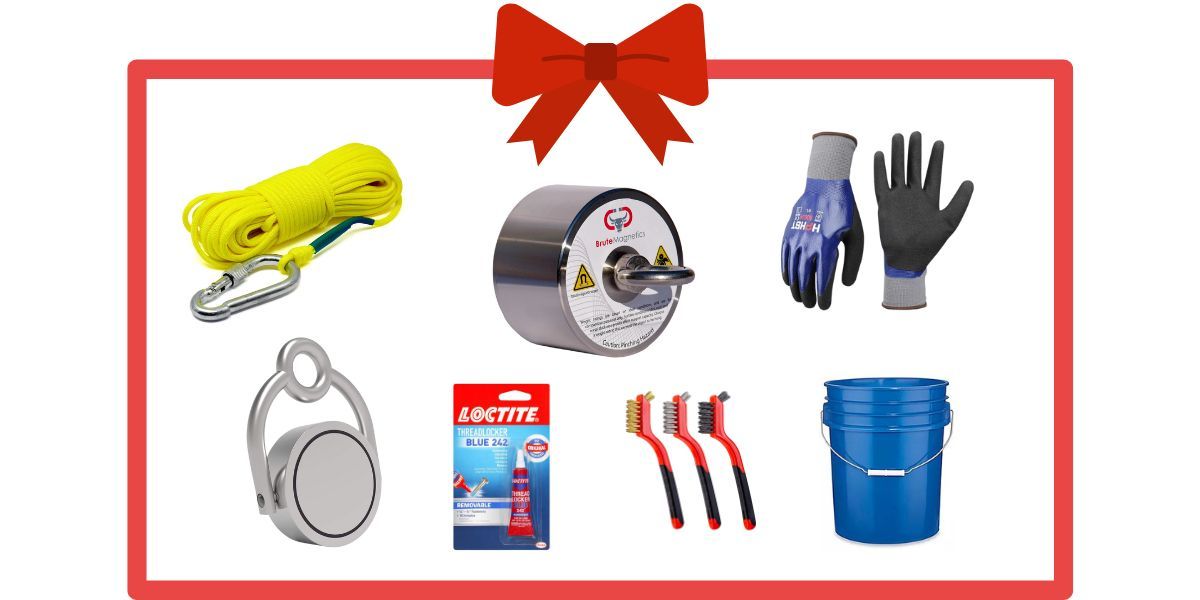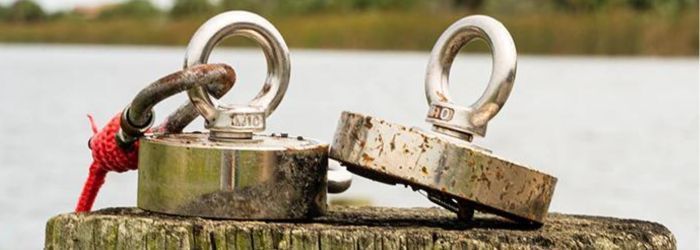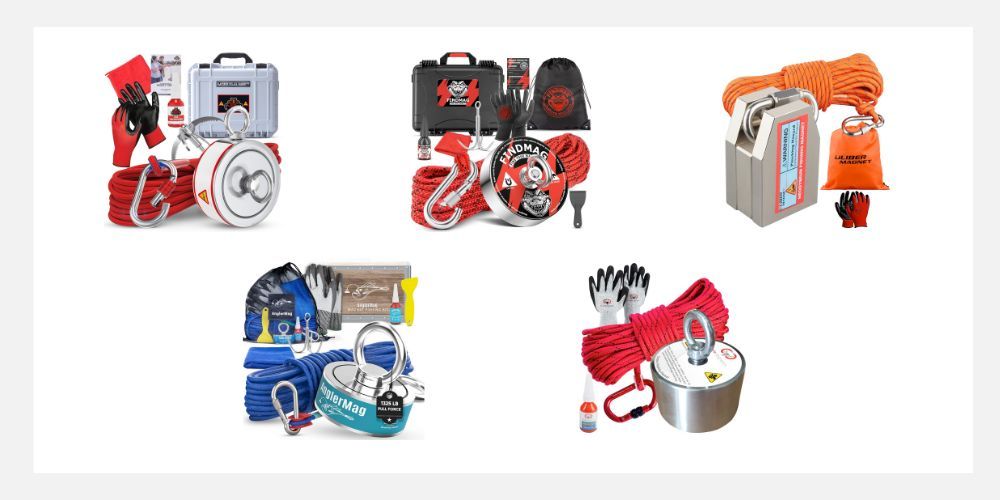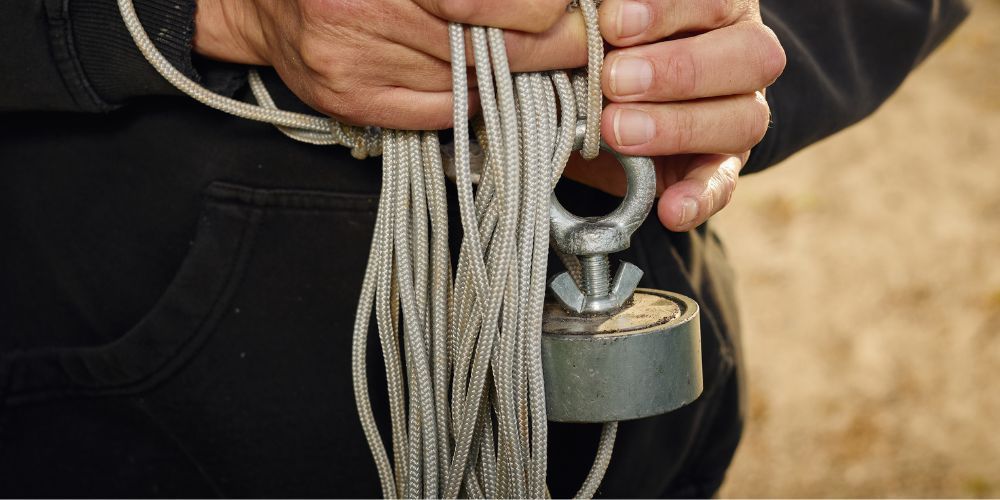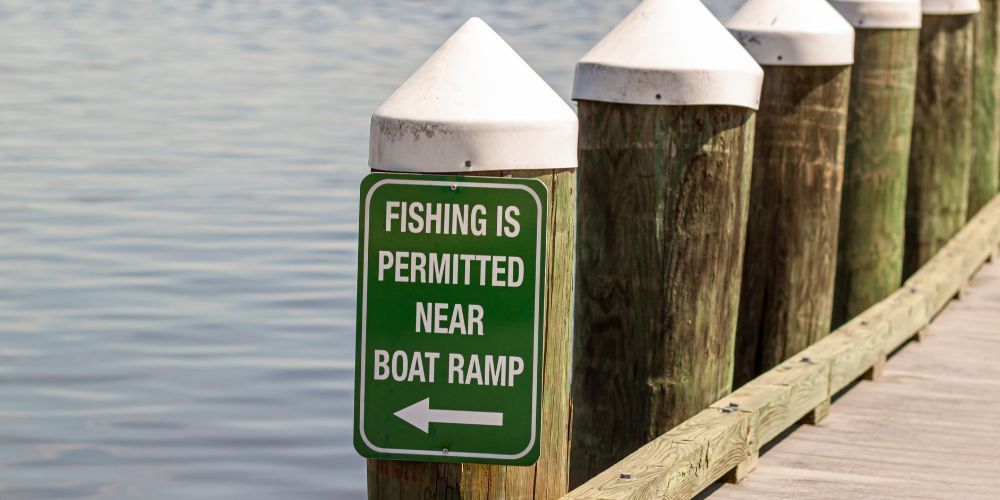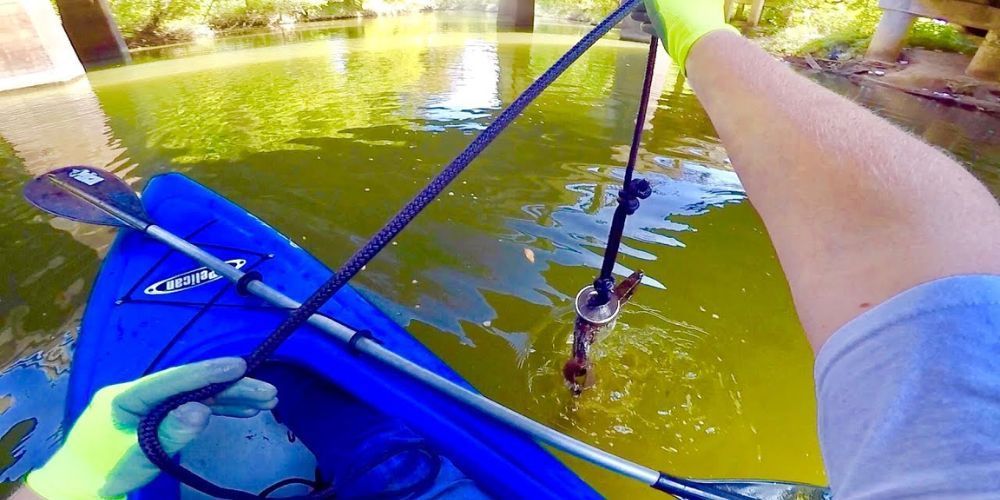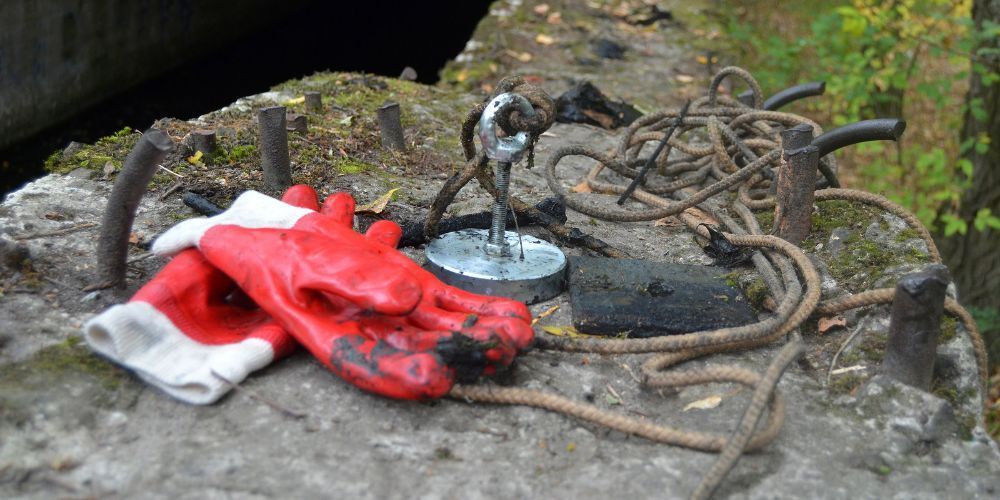What to Do If You Find a Gun While Magnet Fishing
How to Handle Dangerous Finds
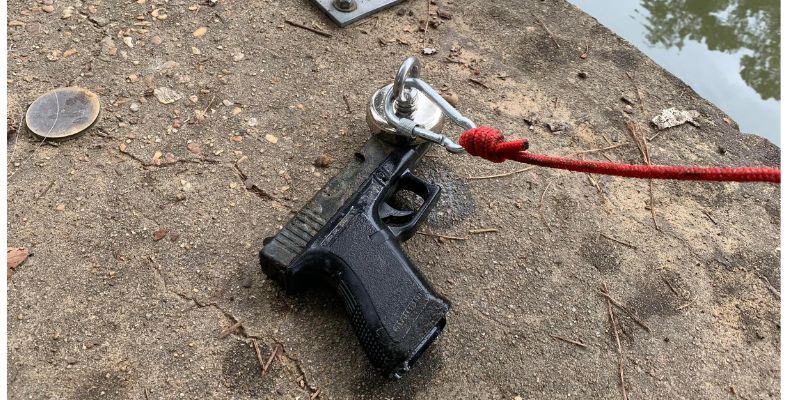
Magnet fishing is a popular hobby where people use strong magnets to fish out metal objects from water bodies. Common finds include coins, fishing hooks, and sometimes antique items. While most finds are harmless, there are instances where magnet fishers come across potentially dangerous items like knives, and more rarely, guns. Given the legal and safety implications, it's crucial to know what to do if you find a gun during your magnet fishing expedition.
Legal Implications
Laws on Finding Guns
Finding a gun while magnet fishing can be a startling experience, but it's crucial to remember that this discovery carries significant legal implications. The laws governing such finds can vary widely depending on your jurisdiction, making it essential to be aware of local, state, and even federal regulations that may apply.
Legal Requirement to Report
In most jurisdictions, there is a legal obligation to report the discovery of a gun to the authorities. This is not merely a guideline but a requirement that could result in legal repercussions if ignored. The rationale behind this is twofold: the gun could either be stolen property or, more seriously, evidence in a criminal investigation or pending court case.
Timeliness of Reporting
The law often stipulates that the discovery must be reported "immediately" or within a specific timeframe. While "immediately" can be subject to interpretation, it generally means as soon as reasonably possible, considering the circumstances. Delays in reporting could not only compromise an ongoing investigation but also put you at risk of legal penalties.
Who to Report To
Typically, the appropriate authority to report a found gun to is the local police. Some jurisdictions may have specialized units for handling such discoveries. It's advisable to call the non-emergency police line unless there is an immediate threat to public safety, in which case calling emergency services would be warranted.
Information to Provide
When reporting, you'll likely need to provide several pieces of information. This can include your location (as precisely as possible), a description of the gun, its condition (e.g., rusted, looks recently used, etc.), and any other observations that might be relevant, such as the presence of a case or ammunition.
Potential Legal Consequences
Failure to report a found firearm can result in a range of legal consequences, from fines to potential imprisonment, depending on the jurisdiction and the specifics of the law. In some cases, not reporting a gun can be considered obstruction of justice, especially if the weapon is later found to be involved in criminal activities.
It's also a good idea to keep a record of your report, including the time of the call, the officer you spoke to, and any reference number you may be given. This can protect you from any legal complications that might arise later.
By understanding the laws on finding firearms, you equip yourself with the knowledge to handle such a situation responsibly and legally. Always consult local laws and regulations to ensure you're in full compliance.
Safety
Handling the Gun
While the primary course of action is to report the find to the authorities, there may be situations where you have to handle the firearm, even if briefly. In such cases, safety should be your utmost priority.
Basic Gun Safety Rules
Before touching the gun, it's crucial to remember the basic rules of gun safety. Always assume that the gun is loaded, even if it appears not to be. This mindset will guide you to handle the weapon as cautiously as possible.
Pointing the Gun Safely
If you have to pick up the gun, make sure to point it in a direction where it would be least likely to cause harm—preferably towards the ground or another non-living object. Never point the gun at yourself or anyone else, even if you think it's not loaded.
Avoid Touching the Trigger
One of the cardinal rules of gun safety is to keep your fingers away from the trigger at all times unless you intend to fire, which should never be the case in this situation. Touching the trigger can accidentally discharge the weapon, leading to potentially fatal consequences.
Use Gloves for Handling
If available, wear gloves while handling the gun. This serves a dual purpose: it provides a layer of protection for you and helps to preserve any potential fingerprints or other forensic evidence that may be present on the weapon.
Securing the Firearm
Once you've ensured that the gun is pointed in a safe direction and your fingers are away from the trigger, place it in a secure location.
Ethical Considerations
Preserving Evidence
When you find a gun while magnet fishing, it's not just an object; it could be a critical piece of evidence in a criminal investigation or legal proceeding. Therefore, how you handle the gun and the surrounding area has ethical implications that go beyond mere curiosity or the thrill of the find.
Do Not Tamper with the Gun
The first and foremost ethical consideration is not to tamper with the firearm in any way. This means resisting the urge to clean it, disassemble it, or even remove mud or debris. Any of these actions could compromise forensic evidence, such as fingerprints, DNA, or ballistic markings, which could be crucial in solving a crime.
Keep the Surrounding Area Undisturbed
Just as the gun itself could be evidence, so too could the surrounding area. This could include other objects nearby or even the position and condition of the gun when found. Try to leave everything as you found it. If it's safe and feasible, consider marking the spot in some way to aid investigators.
Document the Scene
If possible, take photographs of the firearm where it was found and its surroundings. These could be invaluable in any subsequent investigation. However, make sure to do this only after ensuring the gun is secure and that you've taken all necessary safety precautions.
Reporting Is a Civic Duty
Reporting a found gun is not just a matter of legal compliance; it's a matter of social responsibility. The gun could be stolen, used in a crime, or otherwise pose a risk to public safety. By reporting it, you're contributing to the safety and well-being of your community.
Risks of Not Reporting
Failure to report a found firearm is not just a breach of the law; it's a breach of ethical conduct. The weapon could end up in the wrong hands, be used in a crime, or cause accidental harm. The ethical weight of these potential outcomes should underscore the importance of reporting your find to the authorities.
Cooperation
Once you've reported the find, it's also your ethical responsibility to be as transparent and cooperative as possible with the authorities. This could include providing a statement, assisting in securing the area, or even testifying in court if it comes to that.
By understanding and adhering to these ethical considerations, you're doing more than just following the law; you're acting as a responsible member of society. Always remember that the discovery of a gun while magnet fishing has broader implications that require careful, ethical handling.
As we wrap up this guide, it's important to reiterate the many considerations that come into play when you find a gun while magnet fishing. This isn't a simple find like a coin or a fishing hook; it's a discovery that carries significant legal, safety, and ethical implications.
Legal Implications Revisited
Understanding the legal landscape is crucial. Laws can vary by jurisdiction, but the universal principle is that you must report the discovery of a gun to the authorities. Failure to do so can result in legal consequences that range from fines to imprisonment, depending on the jurisdiction and the specifics of the law. Always consult local laws and regulations to ensure you're in full compliance.
Safety Measures Recap
Safety cannot be overstated when dealing with guns. From the moment you find the weapon, every action you take should prioritize safety—yours and that of others around you. This includes handling the gun cautiously, pointing it in a safe direction, and securing it properly while waiting for authorities. Remember, a momentary lapse in judgment can have irreversible consequences.
Ethical Considerations Summarized
Beyond the legal and safety aspects, there's an ethical dimension to consider. The gun could be a crucial piece of evidence in a criminal case, and your actions could either aid or hinder justice. Moreover, reporting a found gun is not just a legal obligation but a social responsibility that contributes to the overall safety and well-being of your community.
While magnet fishing is generally a leisurely hobby, it's clear that it can sometimes put you in situations that require quick thinking and responsible action. Being prepared for such scenarios—knowing the laws, understanding safety protocols, and being aware of your ethical responsibilities—can make a significant difference in the outcome.
So, the next time you go magnet fishing, go with the awareness that it's not just about what you might find, but also about how you handle what you find. Always prioritize safety, adhere to the law, and act responsibly. Your actions, especially in unexpected situations like finding a gun.
By keeping these considerations in mind, you can continue to enjoy magnet fishing as a responsible and informed magnet fisher.
Author: Will Flaiz


